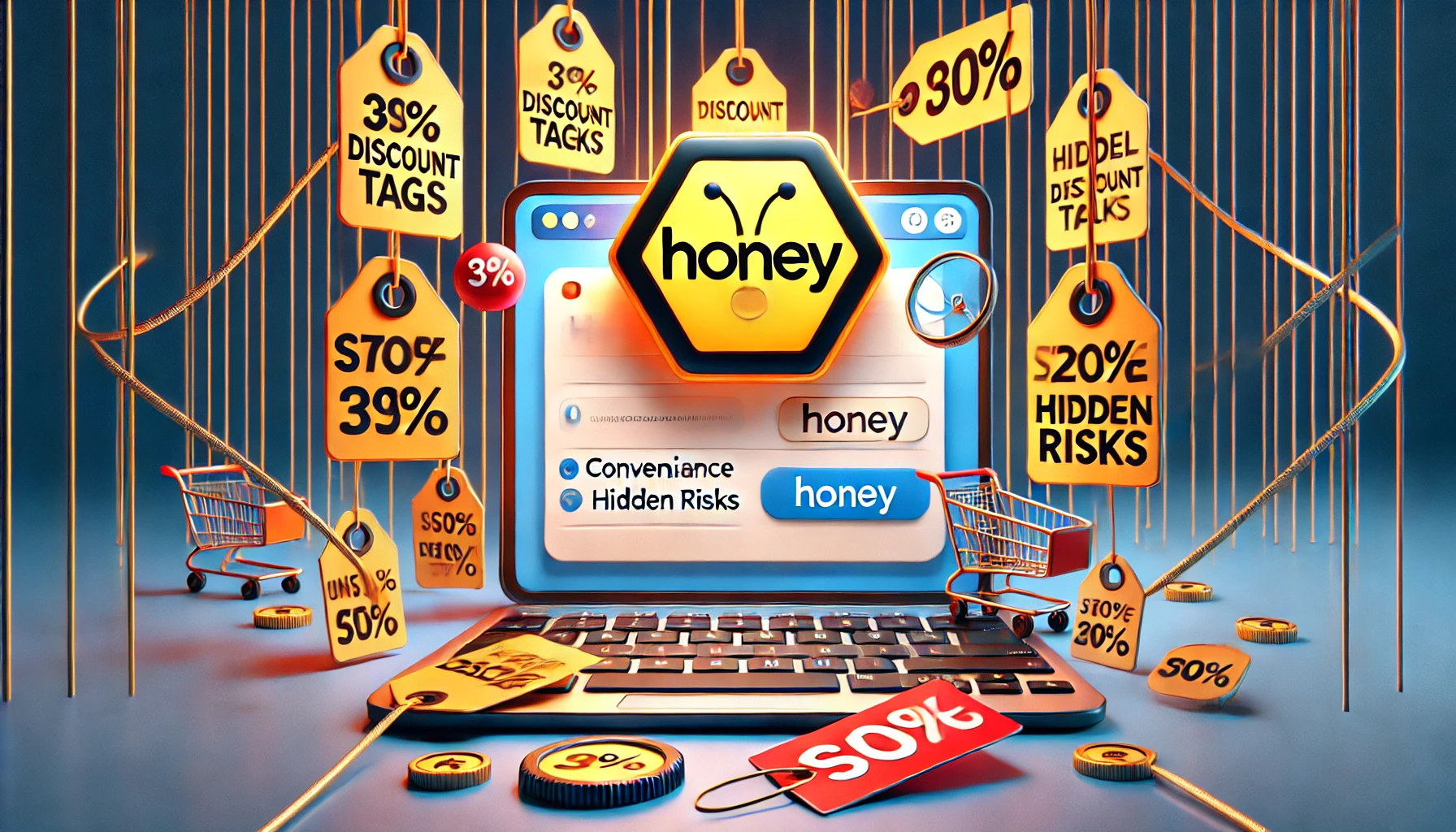Exposing the Honey Scam: Convenience or Consumer Trap?. Honey, the widely used browser extension celebrated for finding discounts and cashback deals, has faced a wave of controversy. Allegations suggest that the extension may engage in deceptive practices, prompting a closer examination of its functionality and business model. While millions of users swear by Honey’s convenience, the recent accusations leave many wondering: is Honey truly saving you money, or is it a consumer trap?
What Is the Honey Scam Controversy?
Honey, owned by PayPal, has long been marketed as a tool to simplify online shopping. Its ability to automatically apply coupon codes and offer cashback rewards has made it a favorite among consumers. However, reports from several sources suggest that Honey may not always work in the user’s best interest. Allegations include manipulating pricing to create the illusion of savings and using its position as an intermediary to collect valuable consumer data.
1. Manipulated Discounts – Honey Scam
One of the most damning accusations is that Honey inflates original prices before applying “discounts.” This creates a false impression of savings, convincing users that they are getting a great deal when, in reality, they may be paying more than they would elsewhere. Reports indicate that these practices may primarily benefit Honey’s affiliate partners and revenue streams.
For instance, a product listed as “50% off” might have had its base price artificially increased just before the discount is applied, leaving users unknowingly paying the standard rate.
2. Data Collection Concerns
As a browser extension, Honey requires extensive permissions to function. It collects data on users’ shopping habits, browsing history, and transaction details. While Honey claims it does not sell personal information, critics argue that its business model heavily relies on user data to negotiate affiliate deals and boost profits. This raises significant privacy concerns, especially if such data were to fall into the wrong hands.
For further insights into how user data is monetized, read The Hidden Cost of Free Apps.
3. Incentivizing Unnecessary Spending
Honey’s cashback system, Honey Gold, rewards users for shopping through its platform. While this may seem like a win for consumers, critics argue that it encourages impulsive purchases. By highlighting deals and dangling rewards, Honey nudges users to spend more than they might have otherwise planned, benefiting both the platform and its retail partners.
Why These Allegations Matter
The accusations against Honey have significant implications for the millions of users who rely on it for online shopping. If the extension does indeed manipulate prices and prioritize its own profits over user savings, it undermines the trust that consumers place in such platforms.
Moreover, the extensive data collection practices highlight a broader issue of transparency and ethical behavior in the tech industry. As consumers, it’s crucial to question how much of our data is being collected and whether the trade-off for convenience is truly worth it.
How to Protect Yourself
To safeguard against potential scams or deceptive practices, consider the following steps:
- Cross-Check Prices: Compare prices on multiple platforms to ensure that the discounts offered by Honey are genuine.
- Review Permissions: Be mindful of the permissions granted to browser extensions and assess whether they are necessary.
- Limit Impulse Purchases: Avoid being swayed by cashback rewards or promotional deals unless they align with your planned spending.
- Stay Informed: Keep up-to-date with the latest privacy policies and terms of service changes for any platform you use.
Conclusion – Honey Scam
Honey’s rise to prominence as a shopping assistant has made it a household name, but the allegations of deceptive practices cast a shadow over its reputation. While it can still provide genuine savings in some cases, users must exercise caution and stay informed. By adopting a critical approach to online shopping, you can ensure that convenience doesn’t come at the cost of trust or transparency.





Leave a Reply